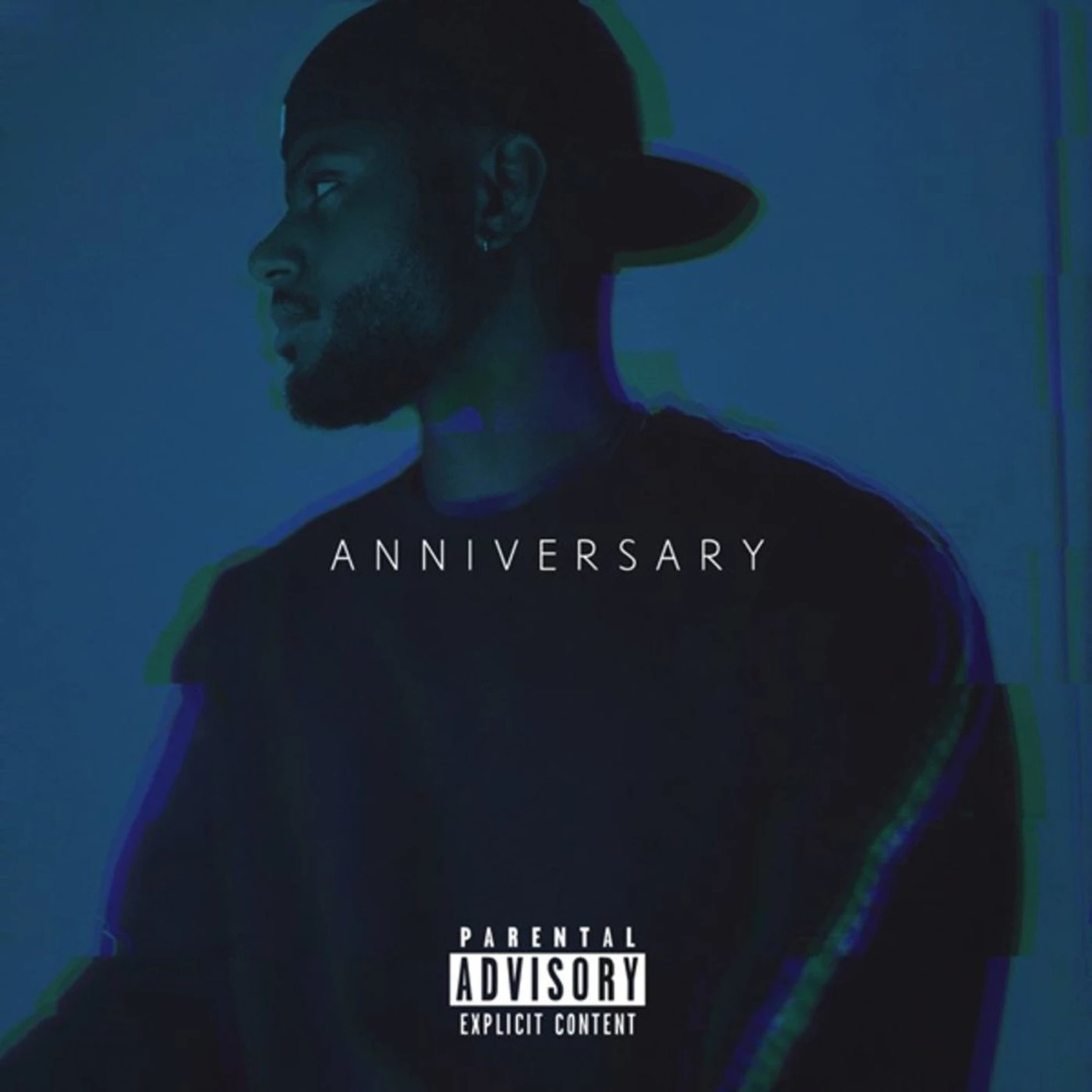Album Review: Bryson Tiller, 'Anniversary'
Five years ago, Bryson Tiller took the world by storm with Trapsoul. From instant classics like "Don't" and "Exchange" to beloved album cuts like "502 Come Up" and "Right My Wrongs," Trapsoul marked a pivotal moment for R&B last decade. Bryson's revelatory rap-singing over aggressive trap beats anchored by soul samples triggered many attempts at recreation, but none could match the authenticity and je ne sais quoi of Trapsoul. In the years since that landmark album, Bryson released True to Self, an album that he has a very complicated relationship with, and guested on a number of songs from other artists. The years post-Trapsoul saw Bryson flexing his muscle as a pop star with songs like "Run Me Dry," "Wild Thoughts," and a remix of Summer Walker's "Playing Games."
Ahead of his previously announced Serenity, Bryson has dropped Anniversary. From its eerily similar album artwork and release date to the "you gon' have about five years go by" lyric in the first song, Bryson immediately sets Anniversary in conversation with Trapsoul. This decision was a conscious one. The impact of Trapsoul reaches far beyond Bryson, but it is still, and likely will always be, the defining project of his career. It's a truly beloved record. Nonetheless, this decision was also a complicated one. Placing Anniversary in direct conversation with Trapsoul ups the ante in a way that Bryson may not have been prepared for. The music, at the very least, needed to be up to par with Trapsoul, if not better since Bryson has had 5 years to work on further developing and expanding his sound. There's a lot of baggage that comes with making an album the de facto sequel to your most successful and acclaimed record, and, too often, Anniversary falls short of Trapsoul's greatness and is just passable on its own.
At just over 30 minutes, Bryson doesn't exactly give us a whole lot to work with. Those 30 minutes are soundtracked by multilayered lo-fi beats over which Bryson does one of two things. He either digs into his emotional vulnerability and draws inspiration from his experiences over the past half-decade or he sleepily goes through the motions of making diluted Trapsoul rejects. "Years Go By" is a promising start to the album. The effective opener evokes Trapsoul-era Bryson with the slightly cocky rapping that occasionally slips into singing. The song marks his maturity and growth over the past five years as he details how his life and priorities have changed. According to Bryson, "The game called me and said, "Come back right now"/Put the fire on the fuckin' wax right now," and he sounds like he is ready to deliver. Unfortunately, that fire extinguishes itself fairly early on the tracklist. "Always Forever" and "I'm Ready" aren't bad songs by any means. They are just a pair of tracks that are ultimately overshadowed by stronger ones later on the album. Both songs lack the urgency that makes "Years Go By" such a compelling listen, but "Always Forever's" story of unrequited love and the delightfully lengthy chorus of "I'm Ready For You" save both songs from being completely boring.
RCA
The following three tracks swiftly turn things around. "Things Change" offers an interesting change in narrative perspective as it traces an argument between Bryson and his girlfriend. Although the song mostly tracks Bryson's side, it does open up a world of possibility for what he can do with dueling narratives in the future. "Timeless Interlude," produced by Sean Momberger, Lee Major & Syk Sense, is a soul-baring number that sees Bryson at his most honest and mature. He juggles ruminations on his children and his mortality while a pitched vocal loop that croons "you gotta trust me" holds everything together. In particular, Bryson delivers this line, "And if Jesus take my life? At least I made it to the greatest heights," with so much heft that it stops you dead in your tracks. R&B artists love making the best tracks interludes. "Sorrows" is another remarkable track that truly captures the essence of Trapsoul. Bryson yearns for reconciliation and basks in his guilt and melancholy over an urgent trap beat — the best one on the album. Alas, a good thing never lasts a long while. "Inhale" completely wastes two iconic samples from the legendary Waiting to Exhale soundtrack: SWV's "All Night Long" and Mary J. Blige's "Not Gon' Cry." This track doesn't even feel like it was meant to sit with the rest of these songs because of how messy the mixing is, you can barely hear what Bryson is saying.
As Anniversary draws to a close, it does end on a high note. Drake, the sole featured artist on the album, does his best singing of the year on "Outta Time," a sparsely produced duet about literally running out of time to save a toxic relationship. "Keep Doing What You're Doing" reigns as the emotional apex of the album; it's a loving ode to Bryson's deceased grandmother. In this vein, Anniversary really excels when Bryson opens up about topics like his children, his family, religion, mortality, etc. We've essentially heard everything that Bryson could ever say about relationships on his first two records. When he fails to expand his lyrical and thematic scope on Anniversary, the album starts to feel like shell of Trapsoul regardless of how great those other tracks maybe. A lot has changed since Trapsoul and Bryson can't afford to sound stuck in this sound. Anniversary is great for a background listen, but if you pay too much attention Bryson starts to feel stagnant. There aren't any songs as memorable, or as good as, "Don't" or "Exchange" which really exposes the relative failure of this attempt at a "successor" to Trapsoul. Hopefully, Bryson challenges himself on Serenity instead of trying to recreate and an album that simply cannot be duplicated.
Key Tracks: "Years Go By" | "Sorrows" | "Outta Time" | "Timeless Interlude"
Score: 65




